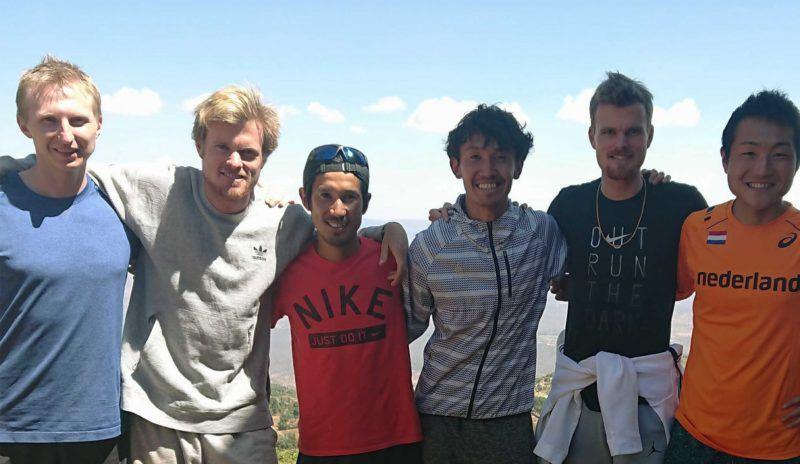
Getting to the top requires hard work, ironclad confidence, and a willingness to continually improve yourself. As a former competitive ice dancer with a pair of Olympic games and a World Championship silver medal under her belt, Susanna Rahkamo knows the secrets of success in both elite sport and in working life.
“The road to the top isn’t easy, but it’s even harder to stay there,” says Susanna Rahkamo, who after retiring from her own sports career took up the task of preparing others to achieve their goals.
“I examined the relationship between innovation, success, and elite sports in my doctoral dissertation,” she explains. “Uniting those elements are passion, perseverance, and finding your own path – along which you can walk boldly. We can learn a lot from others, but we need to do things in our own way. You don’t get to the top by following.”
Today, Rahkamo works as a management consultant at Pertec Consulting, where motivation, enthusiasm, courage, and commitment to excellence are central themes in her coaching. Each of these elements are necessary to become a top-expert, but one should never think they are fully prepared.
“The moment you imagine everything is fine improvement stops. Meanwhile, others are out there working hard to overtake you. There is always something that can be done better, and if you don’t subscribe to that belief things can backfire quickly. This is true for individuals, teams, organizations, and even societies.”
Leadership is Constant Renewal
Rahkamo talks a lot about the importance of self-leadership in her work, observing that it is difficult to lead others if you can’t lead yourself.
“All leadership stems from self-leadership. Breakthroughs in speed, digitalization, and globalization are coming at us from many different directions. It is clear that working life is changing, and to cope we must constantly renew ourselves. Our attitudes and ways of work are shifting, but regardless of the job everyone is self-directed in someway. It is necessary, then, to take stock of one’s own life to create balance and leave time for regeneration – in that sense, everyone needs self-leadership skills.”
But what other attributes are required of a good leader?
“Super-human skills,” Rahkamo laughs and continues. “The most difficult thing for a leader is knowing what to do and when to do it. You need to be good at a huge number of things, but ultimately we are human, so we need to understand that it is not possible to do everything. You need to identify and build on your strengths. At the same time, you need to be aware of your own weaknesses and assemble a team with complementary strengths to compensate for those weaknesses.”

Rahkamo emphasizes that you need good self-esteem to admit that you need a team by your side to push you forward. In place of hierarchy, a good leader builds a top team and fosters positive attitudes.
“Managing the combination of people and issues makes leadership challenging. Managing issues is easier because they don’t shout back at us. People are harder, because we don’t always act rationally. And everyone is different in ways that impact what needs to be done to achieve positive results. If you want to motivate someone, you need to know what they are about. Ultimately, leadership is about understanding people.”
There Are Many Measures of Success
Over the course of her 30-year ice dancing career, Rahkamo experienced both success and disappointment. She never achieved her goal of winning an Olympic medal, but even without ascending to that highest podium, she is able to be satisfied with her career.
“I believe that success is when you are able to maximize your potential. Success can be measured in many ways, but the most important thing is to evaluate yourself in light of your goals and what you can achieve. It is important to learn to appreciate and enjoy the process of improving, because reaching your potential is a lifelong project.”
How can failure be translated into positive energy?
“Someone wise once said that failure is when we no longer learn from adversity. Adversity is a better teacher than success. Success doesn’t arrive directly, it is something that you strive towards. And when you fail, you need to identify what went wrong, so you can try again. If you are not immediately successful, it doesn’t mean you should surrender. The Finnish gaming company Rovio made dozens of games before Angry Birds became an international phenomenon.”
Rahkamo acknowledges that self-leadership may seem like many other abstract concepts, but when the facts are placed on the table, it’s the difference maker.
“It has been really surprising to realize how poorly people often feel about themselves. We have recognized that Firstbeat Lifestyle Assessment is a good tool to help wake people up. It enables them to identify and reflect on their own processes and coping skills. It is important to find the right balance between efficiency, renewal, and well-being. If you make the most of today, you have less to worry about tomorrow.”
Rahkamo would like to improve people’s chances of reaching their full potential by fostering an atmosphere of inspirational leadership across Finland.
“Leaders and people both contribute to this atmosphere. Being well-respected and having meaningful work to do can be a source of remarkable motivation even greater than money. It is important to find projects you are passionate about, and to which you can make your own contribution. That’s when great things can be achieved.”
If you liked this article, you should subscribe to our mailing list
You might also be interested in


“We Have a Problem in the UK in Terms of Productivity”, Professor Sir Cary Cooper Offers His Solution
The president of the CIPD speaks on the issues of poor productivity, long hours culture and work-life balance.

Corporate Wellness and World Class Athletes: Same Technology, Different Uses
Monitoring internal physiology is an effective tool in the pursuit of performance in professional sports, but also in the office.


